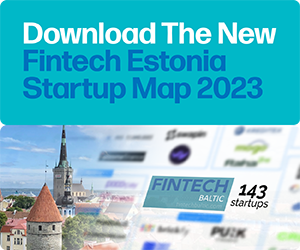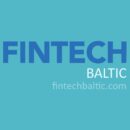
Latvia’s Fintech Industry on the Rise, Driven by Growth in Blockchain, Digital Lending, Regtech
by Fintechnews Baltic March 4, 2024Latvia is home to a dynamic fintech industry that’s witnessing remarkable growth in the blockchain and digital lending sectors.
Additionally, the rise of regtech solutions is being driven by the need to comply to heightened regulatory requirements, offering opportunities for young and innovative startups to meet the demand, providing further impetus to fintech development, a new report by the Fintech Latvia Association says.
The report, titled Fintech Pulse 2023, provides an overview of the current fintech landscape in Latvia, showcasing the country’s strengths, exploring the main trends in the fintech sector and offering key insights on current developments in the regulatory landscape, challenges and work being done to further the development of the industry.
The report draws on insight from industry experts and stakeholders representing companies, organizations and government bodies such as Twino, Mintos, Sorainen, Bank of Latvia (Latvijas Banka), the Latvian Ministry of Economics, the Investment and Development Agency of Latvia, and the Riga Business School.
A burgeoning blockchain sector in Latvia
Highlighting some of the Latvian fintech sector’s biggest trends, the report notes that the Baltic country has witnessed significant growth of its cryptocurrency and blockchain industry over the past years.
Reinis Znotins, executive director of the industry trade group Latvian Blockchain Association, said that approximately 35 companies are now active in the Latvian crypto industry, operating under varied business models and serving different markets. These companies range from crypto payment providers and Web 3.0 gaming, to blockchain software developers and non-fungible token (NFT) startups.
Znotins said that Latvia’s strength in the crypto industry lies in the availability of tech talent. This large pool of skilled programmers has fostered the growth of several notable crypto startups. One relevant example is Gravity Team, a quantitative crypto trading firm and liquidity provider. Gravity Team currently handles about 1% of the global crypto market turnover, or more than US$100 billion in cumulative trading volumes. The Latvian company offers liquidity to 1,200+ crypto-asset pairs across more 25 exchanges located in over 15 countries worldwide.
Rudolfs Engelis, partner at law firm Sorainen and attorney at law, said that Latvia has a change to become a key player in the crypto-assets industry with the introduction of the Markets in Crypto-Assets (MiCA) regulation.
The regulation, which is set to apply from 2024 across the European Union (EU), is expected to catalyze industry development by providing a legal framework for crypto asset markets across the region. By adopting MiCA early on, Latvia could position itself as a leader in the sector and solidify its position in the European blockchain landscape.

Rudolfs Engelis
“We are now in a situation where all of Europe is roughly on the same starting line. Every country has the chance to be the first,”
Engelis said.
“The one that can show the market the fastest that it is ready to issue the first licenses under the MiCA framework and convince companies that it is faster, easier, friendlier to get them in the country will become the leader. This gives us the opportunity to make all the preparations in time to be as ready as possible when the licenses can be issued. The race is now on to see which country will be the first to implement the MiCA Regulation nationally.”
Digital lending continues to grow
Another prominent fintech sector in Latvia outlined in the report is digital lending. Mintos co-founder Martins Valters highlighted Latvia’s early entry into the peer-to-peer (P2P) lending sector within the Baltics, laying the groundwork for subsequent growth.
Marine Krasovska, head of the Financial Technology Supervision Department at Bank of Latvia, stressed that regulators have played a critical role in the growth of the sector by actively overseeing and straightening the P2P lending market.
This has allowed for the emergence of a burgeoning digital lending landscape, which now comprises several regional leaders including Twino and Mintos. According to Arnis Sauka, a professor and the head of the Centre for Sustainable Business at the Stockholm School of Economics in Riga, the non-bank consumer lending sector in Latvia is massive.
In 2022, the total volume of consumer loans issued by the non-banking sector reached EUR 350.4 million. In comparison, the total volume of new loans for private individuals issued by the Latvian banking sector, excluding credit card amounts, was just a slightly higher at EUR 365.5 million, showcasing the rise of fintech over traditional banking.
The potential of regtech in Latvia
Another fintech vertical highlighted in the report is regtech. Lev Bass, co-founder of Huntli, a Latvian regtech company specializing in fraud prevention, said that while the Latvian regtech sector remains in its early stages of development, it is showing promising growth potential, particularly in response to tightening anti-money laundering and combating the financing of terrorism (AML/CFT) regulatory requirements.
According to Straits Research, the global regtech market had a revenue share of US$8.7 billion million in 2021. That amount is expected to rise at an annual growth rate of 22.6% through 2030 and eventually reach US$44.54 billion.
Since Latvia is a member of the EU, the country must comply with various EU regulations, introducing the opportunity for the development of regtech solutions to help businesses and financial institutions meet these requirements more efficiently and effectively.
As Latvia continues to strengthen its position as a Baltic startup capital and attract foreign financial industry players, Bass forecasts that demand for locally based innovative and flexible regtech solutions will continue to rise.
New fintech initiatives in the works in Latvia
According to Tina Luse, managing director of the Fintech Latvia Association, the Latvian fintech industry emerged in the aftermath of the 2008 financial crisis, with the proliferation of consumer lending companies filling the void left by traditional banks. Since then, the industry has diversified to include payment institutions, banking startups, brokerages, crypto companies, and more.
Today, about 150 Latvian startups are operating in fintech, making the sector the most prominent vertical with a share of 25% of all of the country’s 600 active startups.
Supportive initiatives from the government, including startup visa schemes, tax incentives, and startup-friendly stock option policies, have helped accelerate the growth of the fintech sector. Last year, Latvia further cemented its commitment to fintech, adopting the so-called Latvian Fintech Strategy. The plan focuses on four key goals: enhancing the regulatory environment, nurturing skilled professionals, providing industry-specific support, and promoting Latvia as a fintech hub.
Marine Krasovska, head of the Financial Technology Supervision Department at Bank of Latvia said that more initiatives were in the works, including a “Synthetic Data Sandbox project”. The move aims to create a platform that would connect public and non-public databases to facilitate early-stage regtech hypothesis testing, reducing costs and time for business idea owners, and making it equally accessible to students, data enthusiasts, startups, and experienced players in the fintech sector.
The Synthetic Data Sandbox will complement the existing Innovation Hub and Regulatory Sandbox, two initiatives launched by the Latvian government to foster fintech innovation. The Innovation Hub, which has been operational for over four years, offers consultations on the compliance, business model, and regulation. The Regulatory Sandbox, meanwhile, supports innovative product testing.
Featured image credit: Edited from Unsplash







No Comments so far
Jump into a conversationNo Comments Yet!
You can be the one to start a conversation.